
[ad_1]
Phnom Penh: H.E. Dr. Phongsakona, Minister of Culture and Fine Arts, presided over the minutes of discussion and the signing ceremony of the funding agreement for the Tuol Sleng Genocide Museum Conservation and Reproduction Project (Phase II).
On the afternoon of August 8, 2024, the Minister of Culture and Fine Arts, His Excellency Dr. Pensakona, and the Chairman of the Korea International Cooperation Agency (KOICA) in Cambodia and the Director-General of UNESCO, Phnom Penh, presided over the signing ceremony of the Record of Discussions and Grant Agreement for the Tuol Sleng Museum Project “Preservation and Reproduction of the Tuol Sleng Genocide Museum (Phase II)” by the Government of the Republic of Korea through KOICA.
The five-year project “Tuol Sleng Genocide Museum Archives Conservation and Reproduction Project (Phase II)” (2024-2028) currently under signing is a continuation of the first phase of the Tuol Sleng Museum Archives Conservation and Reproduction Project (2018-2021), in particular to support the process of requesting the inscription of 13 former prisons, Tuol Sleng Museum and Choeng Ek Center on the World Heritage List. The main activities planned are: preservation of archives and historical evidence, dissemination of the value of Cambodian monuments to raise awareness of peace, provision of information services and training of specialized officers in cooperation with the UNESCO Phnom Penh Office.
Preserving historical records is one of the most important foundations for educational advancement and cultural preservation. The Royal Government of Cambodia has long stressed the importance of preserving cultural heritage and it remains a high priority in the national development agenda. Among other initiatives, the preservation and reproduction of the archives of the Tuol Sleng Genocide Museum is particularly important given the importance of education, history and memory. However, challenges remain in ensuring the quality and availability of these archives. The question remains: how can the preservation and availability of these archives be improved?
To address these challenges, the Korea International Cooperation Agency (KOICA), in collaboration with the United Nations Educational, Scientific and Cultural Organization (UNESCO) and the Ministry of Culture and Arts, has launched a project titled “Education, Peace, Conservation and Protection”. Photography. “Reproduction of Archives and Preservation Areas for Youth Empowerment (Peace)” called the “Tuol Sleng Genocide Museum Conservation and Reproduction Project (Phase II)”.
The project aims to promote the following objectives: firstly, to enhance the value of Cambodian Memory Monuments (CMS) by preserving records and promoting archival reproduction. Secondly, to improve conservation conditions and visitor environment to protect and enhance the value of Cambodian monuments. Thirdly) – to spread awareness of Cambodian Memory Monuments through improved exhibitions; 4) to promote peace awareness through peace education.
During the recent high-level dialogue between His Excellency Hun Manet, Prime Minister of the Kingdom of Cambodia, and His Excellency Yun Suk-yeol, President of the Republic of Korea, the two countries issued a joint statement on the establishment of a partnership strategy on May 16, 2024. Paragraph 20 of the statement stressed Cambodia’s gratitude to South Korea for its active support in the preservation and restoration of cultural heritage, such as Prasat Chom in Preah Pithu and the elephant herd of Preah Ponlea Chol in Angkor Thom. Recognizing the importance of capacity building for cultural development, both sides stressed the importance of continued cooperation in cultural education and development initiatives, including the establishment of an arts education forum and peace education projects in Cambodia.
Project Objective: Supports Cambodia’s Pentagon Strategy by Promoting Peaceful Societies through Culture, Heritage, Education and Youth Capacity – Phase 1 (2024-2028) Job Growth, Equity, Efficiency and Sustainability: Laying the foundation for achieving Cambodia’s Vision 2050. It specifically contributes to promoting harmony, resilience and inclusiveness while balancing the five principles of development and environmental protection. The project is aligned with the fourth pentagon, ensuring sustainable management of natural resources, cultural heritage and tourism, strengthening urban management and modernization. It supports the Pentagon by improving the quality of education, sports, science and technology and promoting a highly civilized society defined by ethics, equity and the environment. In addition, it contributes to the development of the Pentagon by developing digital infrastructure and creating a reliable and secure digital environment.
KOICA and UNESCO formally signed the “Grant Agreement” and “Memorandum of Talks” with the Ministry of Culture and Fine Arts of Cambodia to launch the second phase of the “Education, Peace, Protection and Development” project.
Youth Empowerment Archives and Area Conservation (PEACE)”, called “Tuol Sleng Genocide Museum Archives Conservation and Replication Project (Phase II)”, was held at the Tuol Sleng Genocide Museum on August 8, 2024.
The Grant Agreement was signed by Ms. Choi Moon-jung, KOICA Country Director for Cambodia, and Mr. Sardar Umar Alam, UNESCO Representative to Cambodia.
Ms. Moonjung CHOI, KOICA Cambodia Country Director, stressed the far-reaching importance of the project. “KOICA’s assistance project in Cambodia symbolizes the shared grief and shared burden between the Cambodian and Korean people,” she said. “Our goal is to alleviate Cambodia’s grief and pain through this project and to lay the foundation for educating future generations about Cambodia’s tragic past to protect the country from similar tragedies in the future.”
The first phase of the Tuol Sleng Genocide Museum Archives Preservation and Replication Project achieved significant results, including the preservation of more than 745,494 pages of the Tuol Sleng Genocide Museum archives and the digitization of nearly half a million pages for global outreach. The records are now accessible through a bilingual website in Khmer and English. The project also provided important technical assistance to museum staff and contributed to the museum’s recognition. In September 2020, Tuol Sleng Museum was awarded the Jik-Ji UNESCO Memory of the World Prize.
Building on the success of the first phase, KOICA-KOICA pledged an additional $3 million to implement the five-year project from 2024 to 2028. The second phase of the project will be extended for another year after the study is completed, including an additional $1 million over the initial project proposal of only $2 trillion and a four-year project implementation. The project aims to promote peaceful societies through education, culture and heritage, and youth capacity building in line with the Cambodian National Strategy (Phase 1 of the Pentagon Strategy).
He recognized the success of the project and the skills of Hang Nisay, director of the Tuol Sleng Genocide Museum in Rwanda and East Timor, and invited him to join their respective committees as a sign of understanding. These countries have experienced their own tragic histories and value the lessons learned from Cambodia’s preservation and archiving initiatives. Working with Rwanda and East Timor, Hang Nisay contributes to the broader international effort to preserve and learn from the past and to promote global dialogue on remembrance, justice and reconciliation.
Tourism is a key pillar of Cambodia’s economy and has already demonstrated its potential by generating billions of dollars in revenue and creating jobs. In 2019, the industry directly employed 630,000 people and tourism revenue amounted to $4.9 billion, accounting for 18.2% of Cambodia’s GDP, the highest among the ASEAN+3 economies. Looking ahead, the project aims to attract more tourists, increase tourism revenue, create jobs in the fields of digital preservation and education, and enhance skills development, especially in archive management and peace education. These efforts will not only increase job opportunities, but also ensure sustainable economic growth in Cambodia.
By ensuring the preservation and accessibility of historical archives, the project promotes scholarship and fosters a deeper understanding of the past, encouraging a shared responsibility to prevent future atrocities. Additionally, protecting and preserving our cultural heritage and promoting intergenerational dialogue not only protects our rich cultural heritage, but also preserves our defining oral histories and customs. These efforts are essential to fostering a sense of continuity and connection between generations of Cambodians.
KOICA, on behalf of the Government of the Republic of Korea, is committed to shouldering the responsibility of strengthening the partnership between the two countries and serving as a bridge between the peoples of the two countries, and will continue to do so. Copyright: Soth Ly
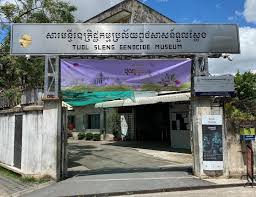
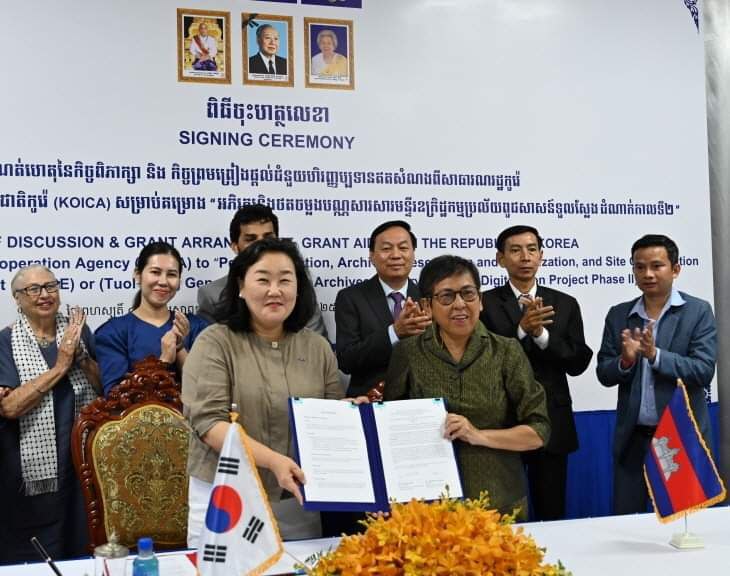
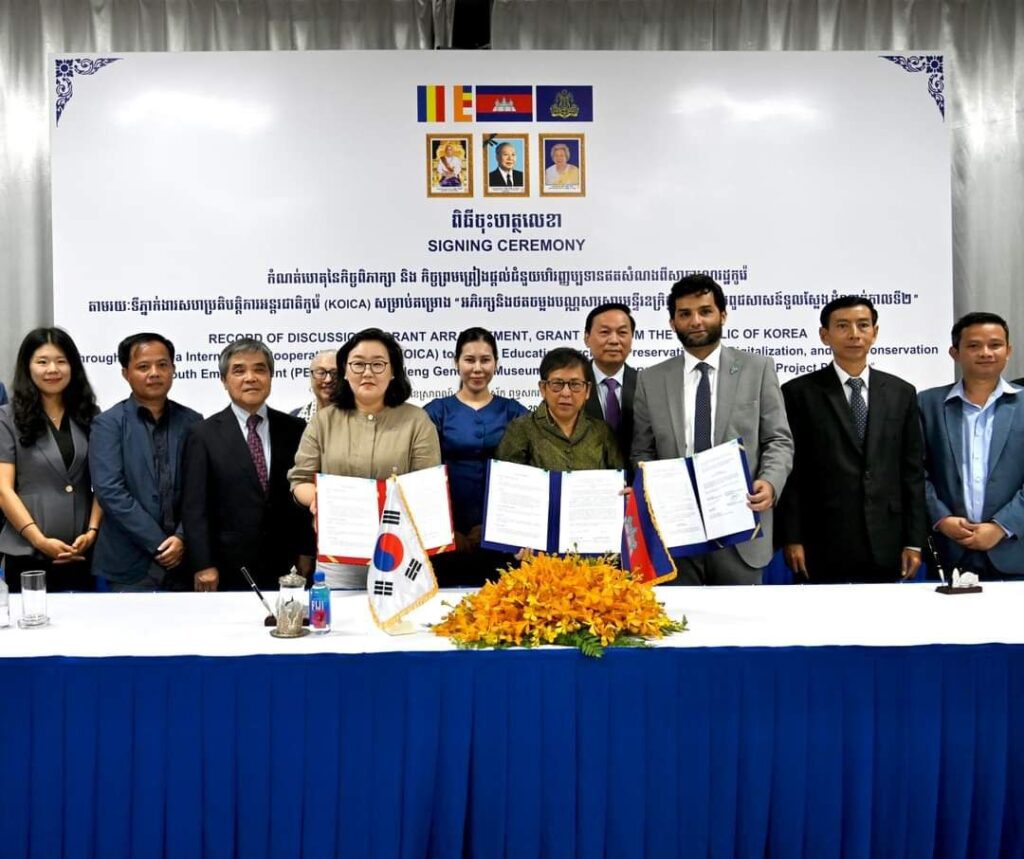
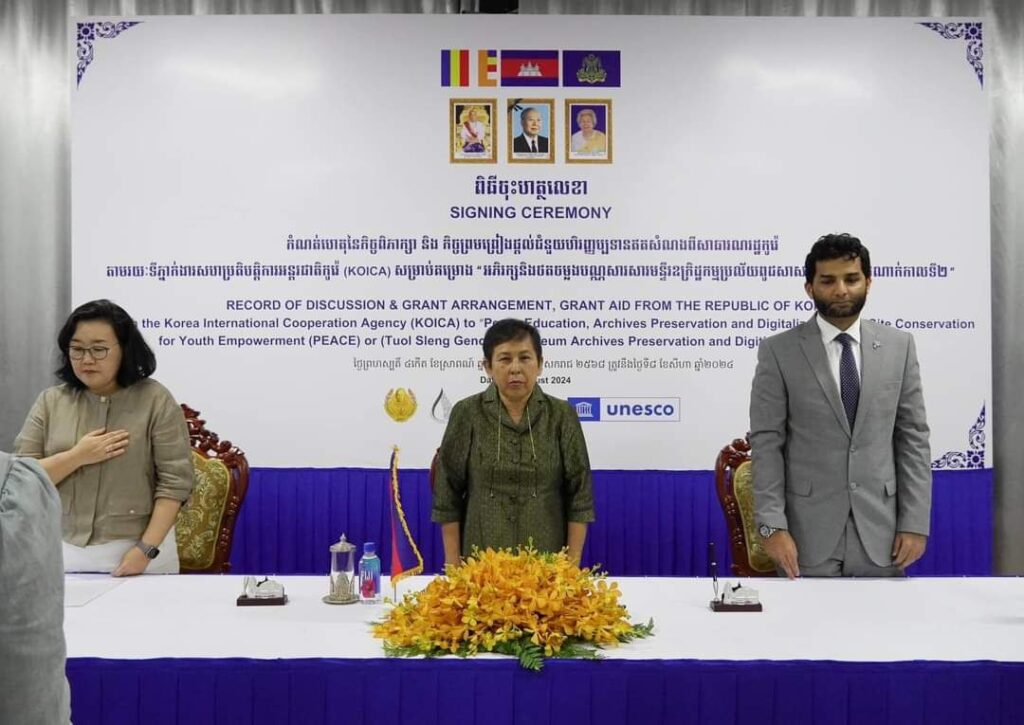
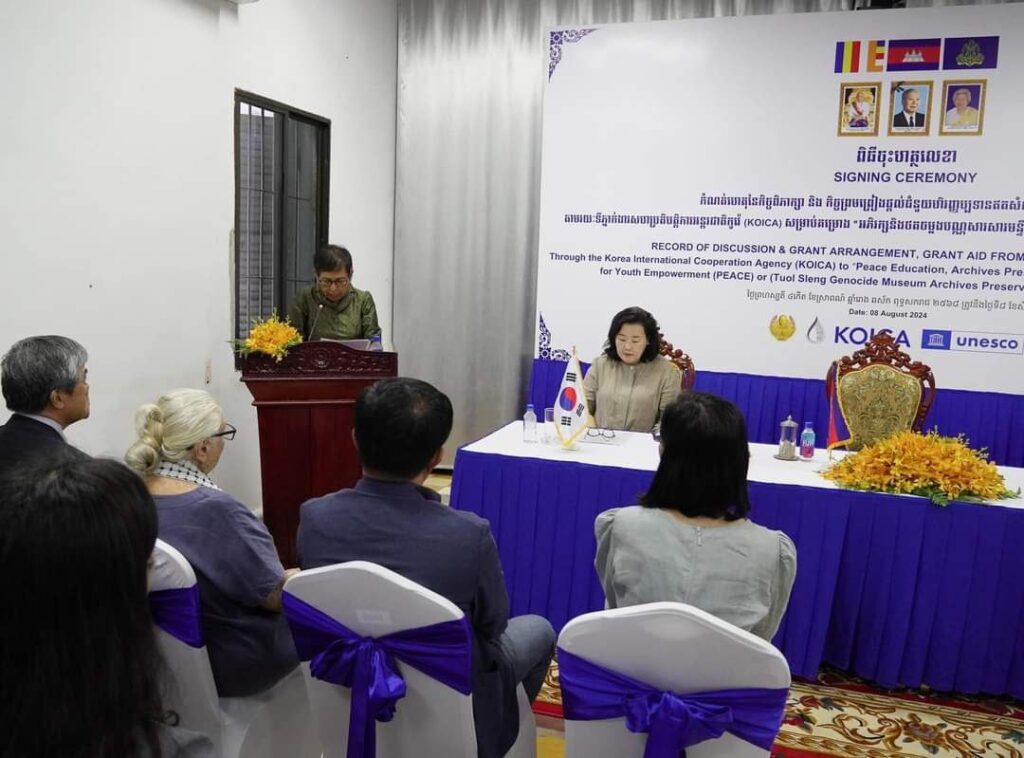
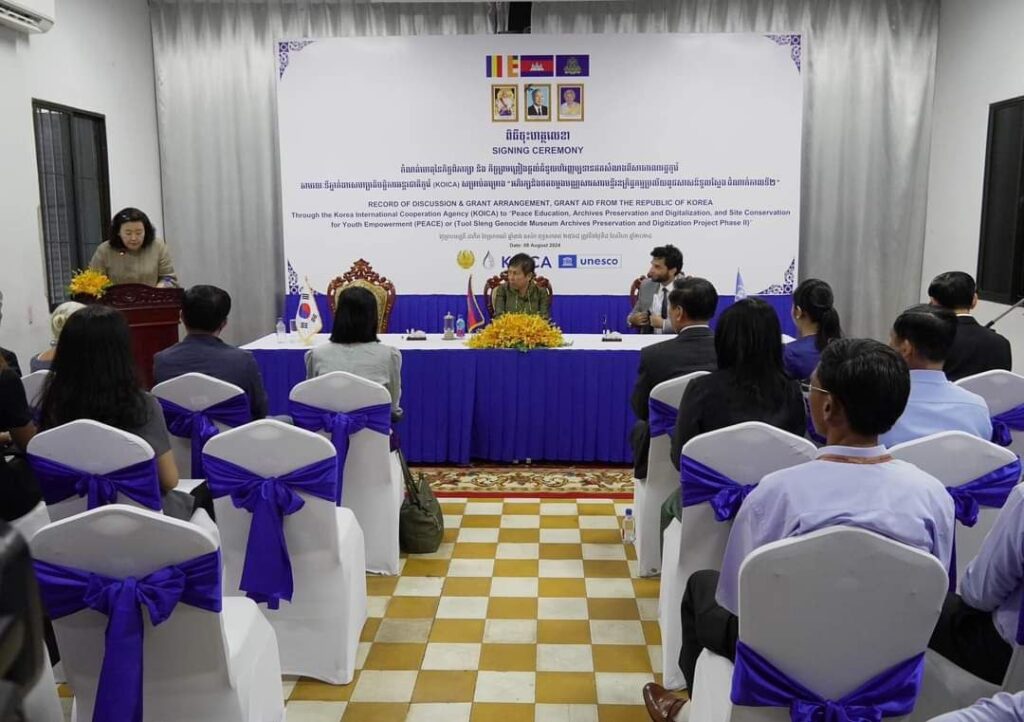
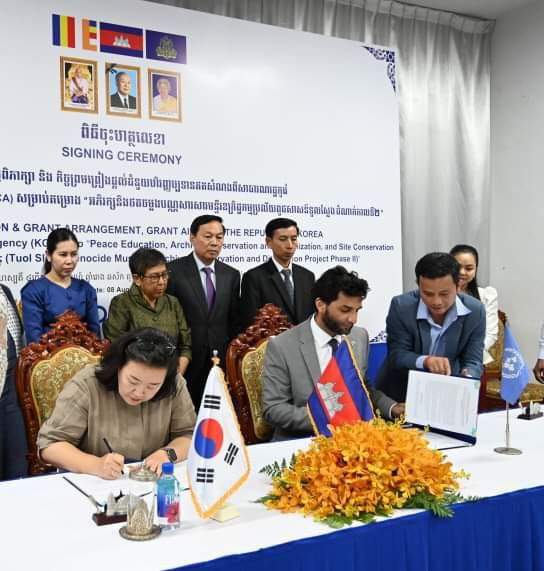
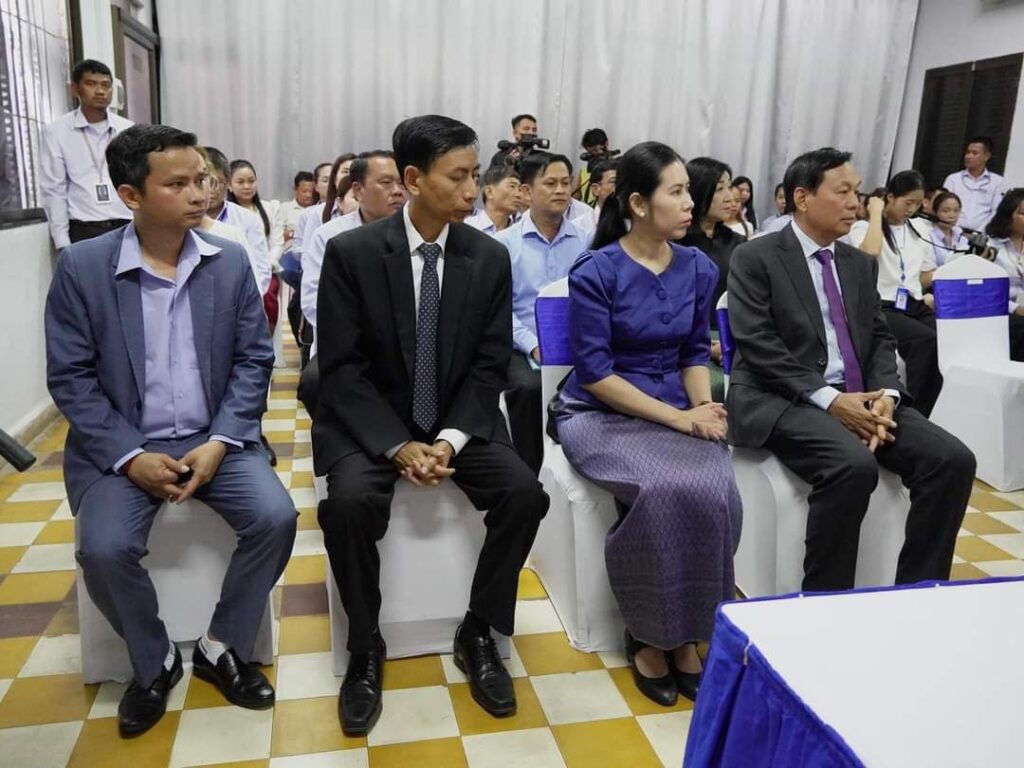
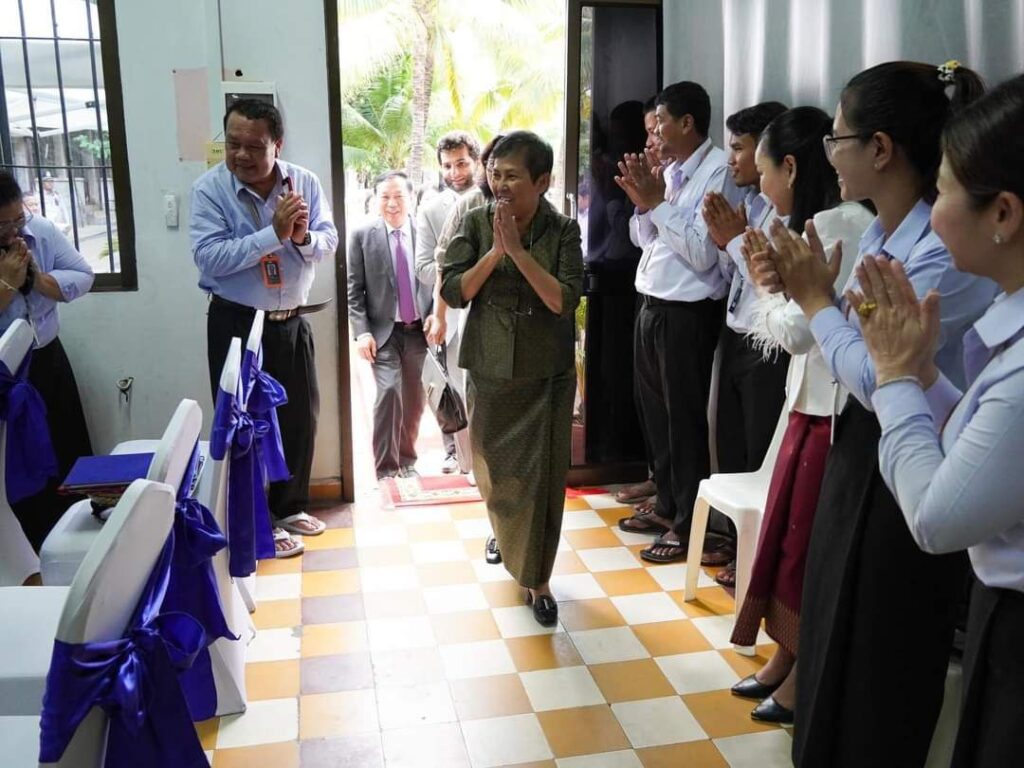
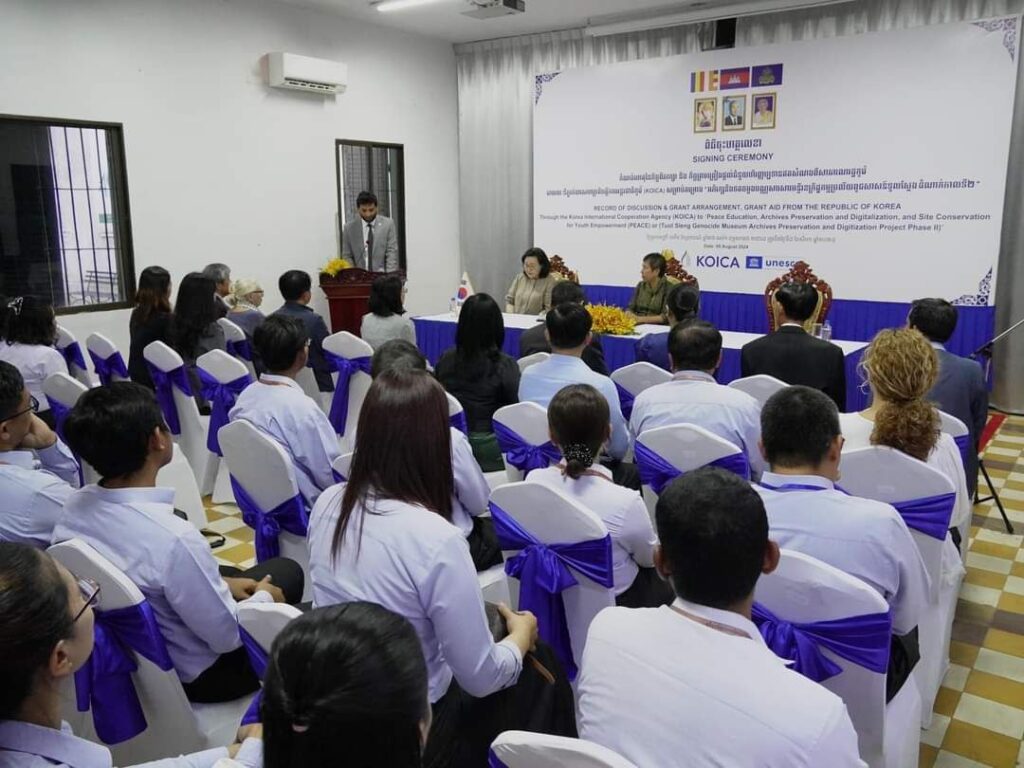
[ad_2]
Source link

